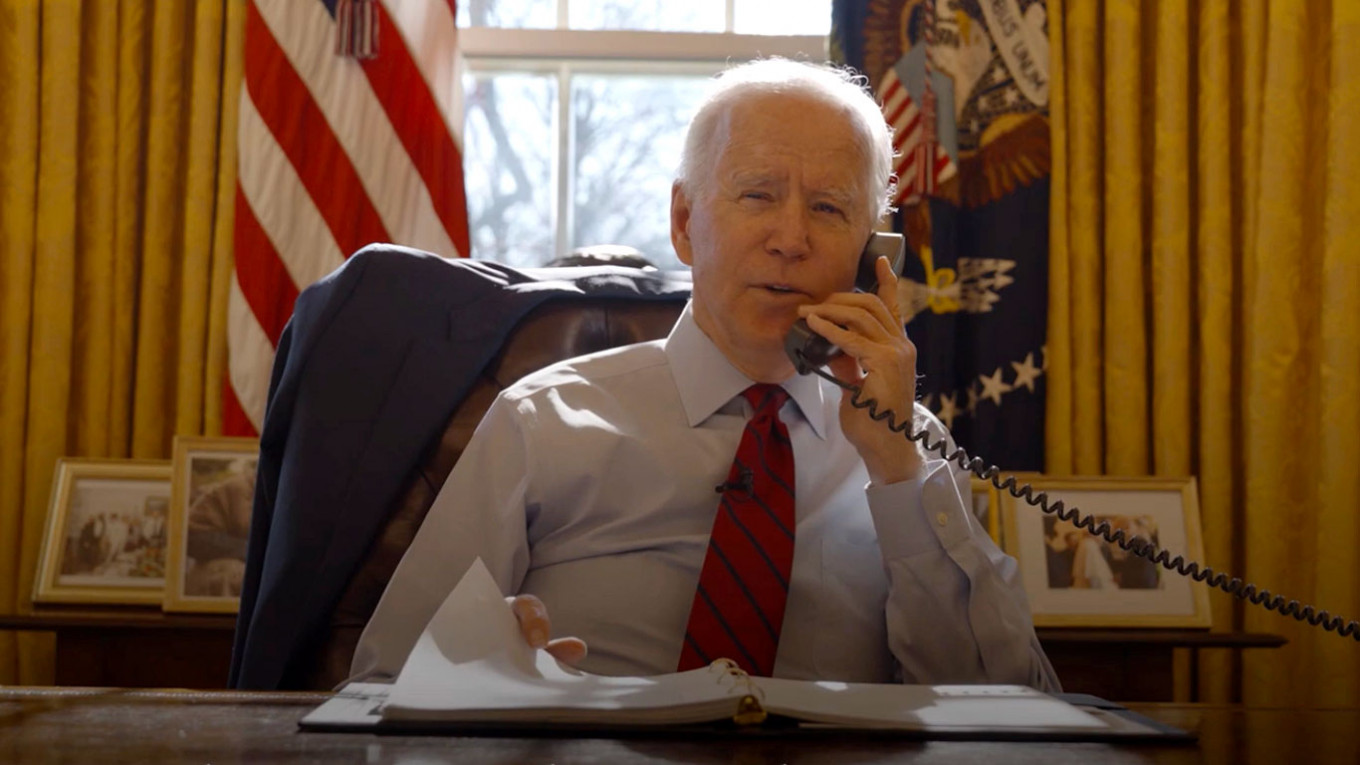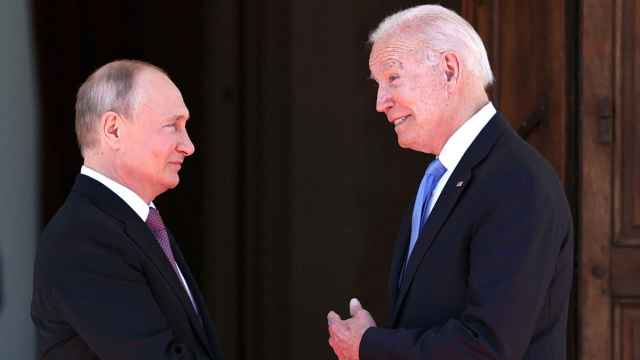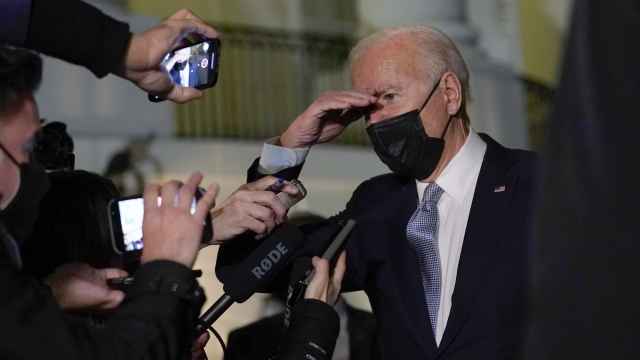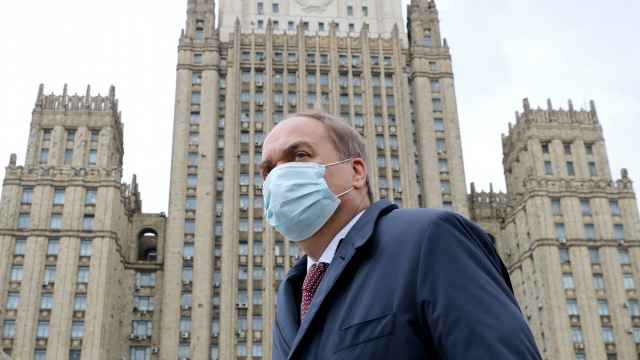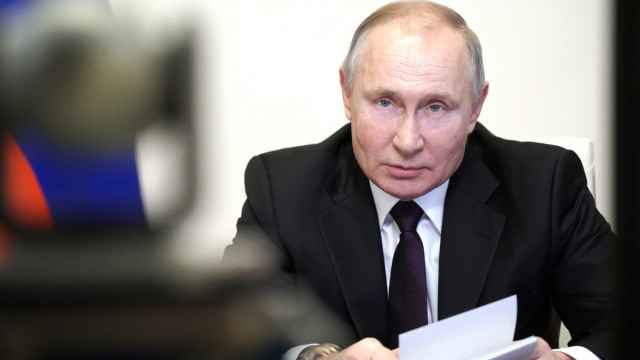The Kremlin said Friday that a video call would take place next week between Russian President Vladimir Putin and U.S. counterpart Joe Biden, amid tensions over the conflict in Ukraine.
Kremlin foreign policy adviser Yuri Ushakov told reporters a date had been agreed but would not be announced until final details of the talks have also been agreed.
"We are close to an agreement on a time that will suit everyone," he said, specifying the conversation would take place following Putin's visit to India Monday.
Putin's spokesman Dmitry Peskov earlier told reporters the leaders would talk over "video conference."
Ushakov said the two leaders would discuss "unsatisfactory" bilateral relations as well as "Afghanistan, Iran, Libya, the Ukraine crisis and dialogue on strategic stability."
He added that the Kremlin hopes Russia's demands for legal guarantees against NATO expansion would also be discussed.
Russian Deputy Foreign Minister Sergei Ryabkov first announced Thursday that "contact" between the Russian and American presidents could take place "in the coming days," without further details.
Tensions have skyrocketed in recent weeks after US Secretary of State Antony Blinken last month said Russia had massed troops near Ukraine and warned Moscow against an invasion.
Kiev said Russia has deployed around 115,000 troops near its borders, on Moscow-annexed Crimea and in two eastern regions held by pro-Russian rebels.
The Kremlin denied the allegations and accused the United States of stoking tensions.
Despite increased contacts between the two rivals since Putin and Biden met for the first time at a summit in Geneva in June, tensions have remained high.
As well as the Ukraine conflict, Russia and the United States continue to argue over cyberattacks and the staffing of their embassies, after several waves of diplomatic expulsions.
A Message from The Moscow Times:
Dear readers,
We are facing unprecedented challenges. Russia's Prosecutor General's Office has designated The Moscow Times as an "undesirable" organization, criminalizing our work and putting our staff at risk of prosecution. This follows our earlier unjust labeling as a "foreign agent."
These actions are direct attempts to silence independent journalism in Russia. The authorities claim our work "discredits the decisions of the Russian leadership." We see things differently: we strive to provide accurate, unbiased reporting on Russia.
We, the journalists of The Moscow Times, refuse to be silenced. But to continue our work, we need your help.
Your support, no matter how small, makes a world of difference. If you can, please support us monthly starting from just $2. It's quick to set up, and every contribution makes a significant impact.
By supporting The Moscow Times, you're defending open, independent journalism in the face of repression. Thank you for standing with us.
Remind me later.


